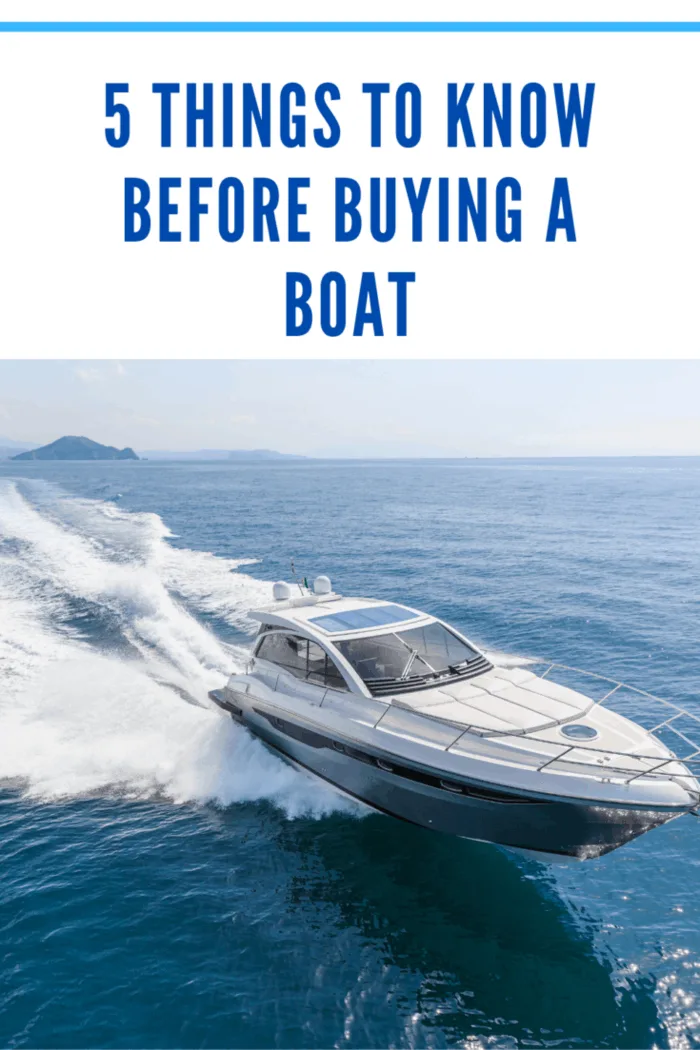Many people fantasize about owning a boat. Days spent fishing, relaxing on the water with friends or your children are undoubtedly good ideas. Who wouldn’t want to live in one of these picture-perfect locations? Given the financial requirements in purchasing a boat, one that suits your budget should be selected. Boats, too, need constant maintenance and are time-consuming to operate.
Before you jump in, ensure that the boat you purchase is a good match for your financial condition and long-term goals. Are you considering purchasing a boat? When buying one, keep the following details in mind:
1. Lessons And Licenses
A boat license describes the boat training card you earn after completing a boat safety course.
You can quickly gain access to the water by enrolling in a boat license safety course, which requires little time and effort.
Each state regulates boating and licensing separately.
Certain states require all boaters to have a license or certificate, while others have an age-based requirement for permits.
In Virginia, all operators of motor watercraft must complete a boat safety course and obtain a boat training certificate.
You can get a Virginia boating license online and finish both the course and exam in one sitting in most cases, say the experts at I Learn to Boat.
Boating safety certificate courses are shorter than those needed to receive a driver’s license; for instance, instruction on the water is often unnecessary.
2. The Expenses
You can’t simply purchase a vessel. You buy the boat and all necessary equipment for storing, maintaining, and operating it.
The amount of money required is primarily determined by the size and sophistication of the boat and whether you choose to purchase new or used.
In general, smaller and simpler is less expensive.
The initial selling price is lower, the insurance premium is lower, the cost of fuel and repairs is usually lower, and you can trail a boat rather than keep it in a marina, which is an inexpensive choice.
Unsurprisingly, new boats are significantly more costly than used boats.
Although the purchases you make will save you money in the short run, they also increase your risk.
Few used boats are in excellent condition, and as a result, they should always be inspected professionally for their condition and value.

3. Know Your Needs and Capabilities
Following that, you’ll want to think about the kind of boat you want.
Boat choices include sailboats, motorboats and pontoons, houseboat floatation, fishing boats, electric-powered boats, ski boats, cabin cruisers, and even larger yachts.
Used vessels are also suitable alternatives. What is the least expensive option?
Which choice is the best for your long- and short-term goals? Consider the costs, maintenance, and upkeep.
Finally, storage is taken into account. Is it enough to mount the boat on a trailer or in a particular storage unit?
Is it going to be towed behind your truck or SUV? Both of these variables may have an impact on the type and size of a boat you can purchase.
4. Learn About Equipment And Accessories
You’ve already been informed about the essential equipment and accessories for boat owners if you got a boating learning course; now, it’s up to you to learn how to use them properly.
After purchasing a navigation app, a map plotter, and even life vests, you’ll need to practice using them.
When you’re out in the water, you don’t want to be fumbling with a screen or struggling to put on a brand-new life jacket.
Ascertain that your boat is equipped with anything you need and that you’re familiar with its location and operation.
Not doing so could cost you money or even your life.

5. Insurance Policies
Boat insurance premiums differ according to the length and model of the boat, the boat’s value, and the coverage amount selected.
Consult the insurance agent or browse around for the best price.
Certain smaller boats can be insured as a rider on a homeowner policy for a small additional fee.
It would be best if you research boat preparation to reduce the expense of maritime insurance premiums.
At the very least, you’ll be protected from liability in the case of a boat crash if you have an insurance policy.
Takeaway
Possessing a boat entails a host of additional expenses.
Along with fuel and gasoline, jackets, rods and buckets, and various other products, maintenance and repair services should be considered.
In addition to the boat’s purchase price, these annual expenses can easily total tens of thousands of dollars.
Before you buy, ensure that you’re financially prepared for these costs.
